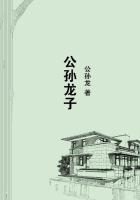The last chapter has been concerned with the contention that orthodoxy is not only (as is often urged) the only safe guardian of morality or order, but is also the only logical guardian of liberty, innovation and advance. If we wish to pull down the prosperous oppressor we cannot do it with the new doctrine of human perfectibility; we can do it with the old doctrine of Original Sin. If we want to uproot inherent cruelties or lift up lost populations we cannot do it with the scientific theory that matter precedes mind; we can do it with the supernatural theory that mind precedes matter.
If we wish specially to awaken people to social vigilance and tireless pursuit of practise, we cannot help it much by insisting on the Immanent God and the Inner Light: for these are at best reasons for contentment; we can help it much by insisting on the transcendent God and the flying and escaping gleam; for that means divine discontent. If we wish particularly to assert the idea of a generous balance against that of a dreadful autocracy we shall instinctively be Trinitarian rather than Unitarian. If we desire European civilization to be a raid and a rescue, we shall insist rather that souls are in real peril than that their peril is ultimately unreal. And if we wish to exalt the outcast and the crucified, we shall rather wish to think that a veritable God was crucified, rather than a mere sage or hero. Above all, if we wish to protect the poor we shall be in favour of fixed rules and clear dogmas.
The RULES of a club are occasionally in favour of the poor member.
The drift of a club is always in favour of the rich one.
And now we come to the crucial question which truly concludes the whole matter. A reasonable agnostic, if he has happened to agree with me so far, may justly turn round and say, "You have found a practical philosophy in the doctrine of the Fall; very well.
You have found a side of democracy now dangerously neglected wisely asserted in Original Sin; all right. You have found a truth in the doctrine of hell; I congratulate you. You are convinced that worshippers of a personal God look outwards and are progressive;
I congratulate them. But even supposing that those doctrines do include those truths, why cannot you take the truths and leave the doctrines? Granted that all modern society is trusting the rich too much because it does not allow for human weakness; granted that orthodox ages have had a great advantage because (believing in the Fall) they did allow for human weakness, why cannot you simply allow for human weakness without believing in the Fall?
If you have discovered that the idea of damnation represents a healthy idea of danger, why can you not simply take the idea of danger and leave the idea of damnation? If you see clearly the kernel of common-sense in the nut of Christian orthodoxy, why cannot you simply take the kernel and leave the nut?
Why cannot you (to use that cant phrase of the newspapers which I, as a highly scholarly agnostic, am a little ashamed of using) why cannot you simply take what is good in Christianity, what you can define as valuable, what you can comprehend, and leave all the rest, all the absolute dogmas that are in their nature incomprehensible?"
This is the real question; this is the last question; and it is a pleasure to try to answer it.
The first answer is simply to say that I am a rationalist.
I like to have some intellectual justification for my intuitions.
If I am treating man as a fallen being it is an intellectual convenience to me to believe that he fell; and I find, for some odd psychological reason, that I can deal better with a man's exercise of freewill if I believe that he has got it. But I am in this matter yet more definitely a rationalist. I do not propose to turn this book into one of ordinary Christian apologetics; I should be glad to meet at any other time the enemies of Christianity in that more obvious arena. Here I am only giving an account of my own growth in spiritual certainty. But I may pause to remark that the more I saw of the merely abstract arguments against the Christian cosmology the less I thought of them. I mean that having found the moral atmosphere of the Incarnation to be common sense, I then looked at the established intellectual arguments against the Incarnation and found them to be common nonsense. In case the argument should be thought to suffer from the absence of the ordinary apologetic I will here very briefly summarise my own arguments and conclusions on the purely objective or scientific truth of the matter.
If I am asked, as a purely intellectual question, why I believe in Christianity, I can only answer, "For the same reason that an intelligent agnostic disbelieves in Christianity." I believe in it quite rationally upon the evidence. But the evidence in my case, as in that of the intelligent agnostic, is not really in this or that alleged demonstration; it is in an enormous accumulation of small but unanimous facts. The secularist is not to be blamed because his objections to Christianity are miscellaneous and even scrappy; it is precisely such scrappy evidence that does convince the mind.
I mean that a man may well be less convinced of a philosophy from four books, than from one book, one battle, one landscape, and one old friend. The very fact that the things are of different kinds increases the importance of the fact that they all point to one conclusion. Now, the non-Christianity of the average educated man to-day is almost always, to do him justice, made up of these loose but living experiences. I can only say that my evidences for Christianity are of the same vivid but varied kind as his evidences against it. For when I look at these various anti-Christian truths, I simply discover that none of them are true.















